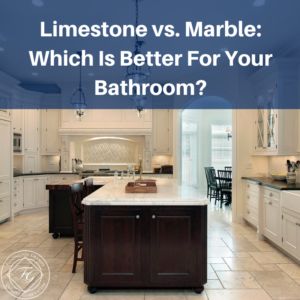
If you are searching for countertops for a remodeling project and have considered natural stone, you are not limited to just granite or marble. Limestone is an option that has grown increasingly popular over the years. Limestone looks very much like marble but with a more unique veining due to the way it is formed.
Limestone is created from shells and bones of ancient aquatic life while also being shaped by today’s underwater creatures. Before installing limestone countertops, there are things you need to know as they could have an impact on whether limestone is the right option for you.
Limestone Can Be Used in a Kitchen
Many designers will tell you that limestone should not be used in kitchens as it is a much softer stone than granite. However, there are some types of limestone that are just as hard as granite and are perfect for use in a kitchen. These are often quarried in France or Germany.
The versatility of limestone makes it perfect for kitchens as well since it is available in many textures, sizes and colors. Because your kitchen counter gets the most strenuous workout, you want a counter that will resist cracking and breaking. Choosing a harder limestone product will help keep your counter from being damaged if you drop something on it.
Purchase Price is Lower than Granite
Many times, the cost of limestone along with installation is cheaper than granite, which is why many people choose it for their project. However, before deciding on limestone because of the price, you need to take into consideration the maintenance necessary to keep the look of your new counters.
Limestone must be professionally sealed as it is very porous and the sealant should be reapplied each year, which can get costly over time. The sealant is important not just to prevent staining, but also to keep bacteria from developing when food items seep into the porous surface.
Don’t Use Traditional Cleansers
Limestone should never be cleaned with traditional cleansers as these may strip the sealant and leave your counter unprotected. There are professional cleaners designed specifically for limestone, use a cleaner that has a neutral pH or create your own mixture using mild detergent and water. Never use scouring pads or sponges with rough surfaces as they can scratch limestone. Instead, a soft rag is the best choice for cleaning.
If you are considering natural stone counters, contact us today to learn more about limestone. You can reach our knowledgeable sales staff by calling or completing the easy form online.






